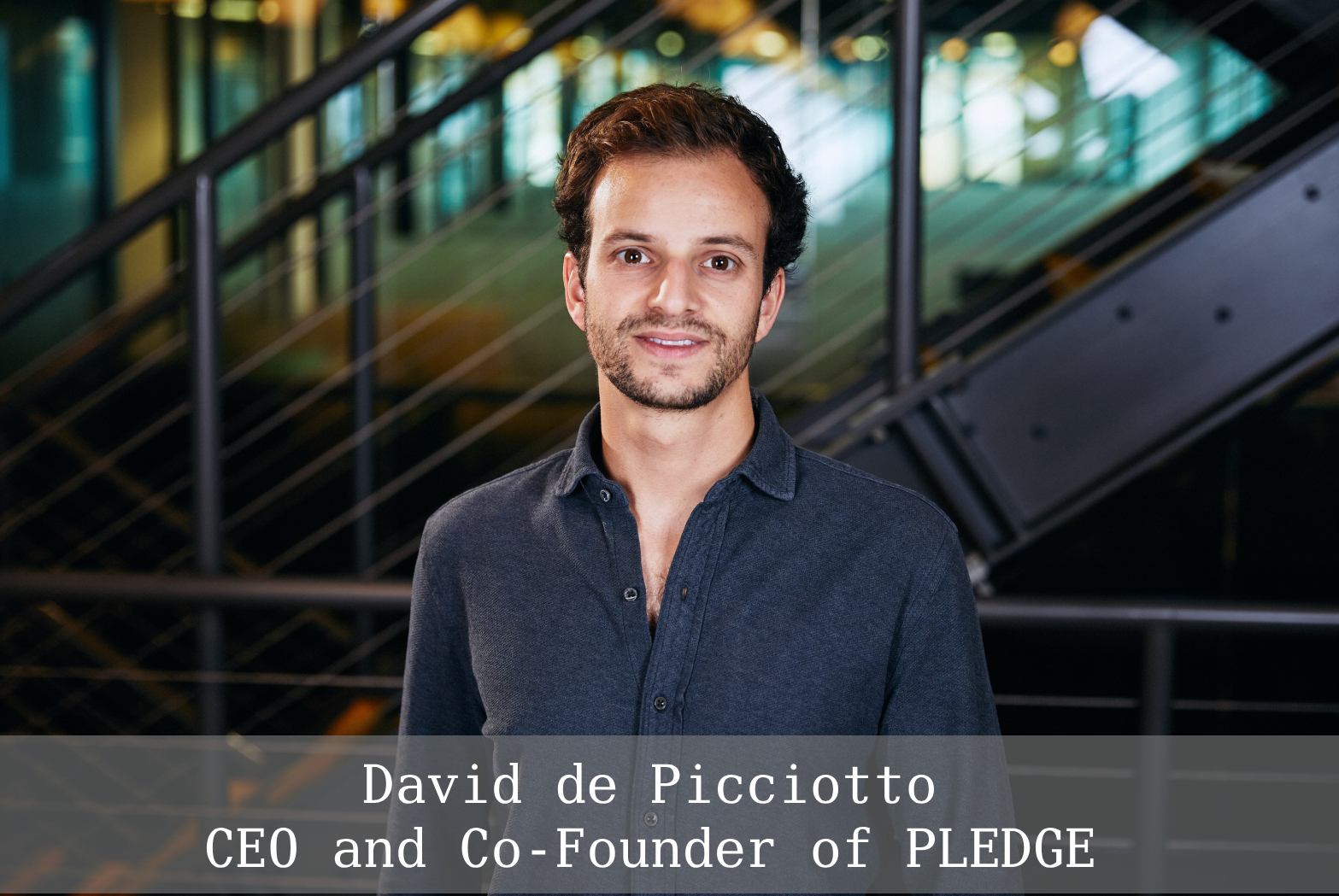“Global logistics is responsible for up to 11% of the world’s carbon emissions but, unlike other industries, it’s been slow to embrace sustainability”.
This week, we had the opportunity to have a chat with Mr. David de Picciotto, CEO & Founder of Pledge- a carbon emission visibility platform, for the freight forwarding industry. In this interview, he talks about his company that is leveraging technology to combat climate change, the urgency to reduce the carbon emission of the logistics sector, ways to successfully implement a carbon reduction strategy and much more.

Q. To start with, tell us a little bit about the Pledge platform. How is it enhancing the sustainability of freight forwarding operations?
A. The Pledge platform enables freight forwarders to measure their customers’ carbon emissions to a level of granularity that enables them to make informed decisions on how to best reduce their carbon footprint. This could be done by choosing carriers that use alternative fuels for certain legs of shipments, or by switching to modes of transport that are less emissions-intensive — for example, by choosing rail over air freight. We also offer an offsetting marketplace that brings together a collection of portfolios built from verified offsetting and carbon removal projects from around the world. Once shippers have reduced their carbon footprint as much as possible, they can then use our marketplace to offset their unavoidable carbon emissions, enabling them to reach net zero.
Q. Why do you think it is important for the logistics industry to embrace sustainability?
A. Global logistics is responsible for up to 11% of the world’s carbon emissions if you include warehouses and ports — that’s a lot of emissions. Yet, unlike other industries, it’s been slow to embrace sustainability. I think there are several reasons for this. Firstly, the logistics of implementing sustainable practices in such a complex ecosystem has discouraged many companies from attempting this.
Secondly, the scale at which the logistics industry would need to change — for example, the complete redesign or retrofit of cargo ships — is extremely daunting, especially for an industry where the margins of revenue are already very low.
Thirdly, there’s a high amount of data fragmentation in the industry, which makes it difficult to take stock of where the best places to start reducing emissions within the supply chain are. This is what our measurement platform is built to address, so we can start the ball rolling on making it easier for the industry and its users to gain visibility and understand their emissions.
Q. Do you think embracing emissions measurement can give a competitive advantage to independent freight forwarders?
A. Definitely! We’re already seeing this happen. Right now, the global logistics industry is at a crossroads. Emissions disclosure regulations that are already in place in the EU (CSRD) and soon to be more widely introduced in the UK (SDR) and US (SEC) require shippers to report their emissions, including their scope 3 transport and distribution emissions, for 2024 onwards, with the first reports due in 2025. Moreover, as freight forwarders are the eyes and ears of the supply chain, they hold all the necessary data to transfer into the emissions data necessary for their customers to disclose their transport and distribution emissions. Forwarders that offer this service will be much better positioned to take on business from shippers who require these metrics.
Beyond the regulations, there’s also been a trend towards voluntarily reducing supply chain emissions for many shippers — especially as for many, their supply chain emissions account for up to 70% of their overall emissions output. As brands become more sustainability-focused, they’ll look to partner with freight forwarders that match this value, putting those that offer emissions measurement as part of their offering at a real advantage.
Q. How are you educating freight forwarders about the importance of environment-friendly logistics operations?A. At Pledge, we’re constantly adding content and information to our website, attending industry events and speaking to the press about sustainability in global logistics to help keep customers up-to-date and informed on sustainability-related topics. We also partner with some of the world’s biggest freight associations, such as the British International Freight Association (BIFA) and WCAworld to educate their members on sustainability in the supply chain. But, we also want our product to do the talking for us. Anyone can sign up for a 14-day free trial to get full access to our platform to see for themselves how it can help them measure their customers’ emissions. Our platform is itself an education tool — it helps forwarders and their customers understand where in the supply chain are most emissions-intensive, enabling them to act on this and change their operations to make emissions reductions. |
Embrasing emissions measurement will give a competitive advantage to independent freight forwarders: Emissions disclosure regulations that are already in place in EU – and soon in UK or USA, require shippers to report their emissions, and, as brands become more sustainability-focused, they’ll look to partner with freight forwarders that match this value. |
Q. What has the response been from freight forwarders that have used your platform?
A. The response has been really positive and it keeps getting better. For a company that’s only been around for 2 years, we’ve already secured some of the biggest names in freight forwarding, including Ligentia, Europa Worldwide and regional players like Davies Turner. Our customers particularly like the fact that they can upload data in various different ways such as CSV file upload, via email, manual data upload or by using our open API. Importantly, they can start uploading data and measuring emissions immediately before the API integration is complete — a feature that allows them to meet customer needs at short notice.
Q. Do you think sustainable logistical operations can promote business growth?
A. Sustainability will be key to promoting growth for freight forwarders. With regulations coming into force and the move towards more sustainable operations, sustainability will form a crucial part of transport and logistics transition to net zero — and freight forwards will be at the centre of this. But there’s loads of opportunity for growth — especially for forwarders that act early. As sustainable products and services become more and more desirable, so will sustainable supply chains. Forwarders that position themselves as sustainable operators now, will reap the rewards and see opportunities for growth once sustainable supply chains become normalised.


